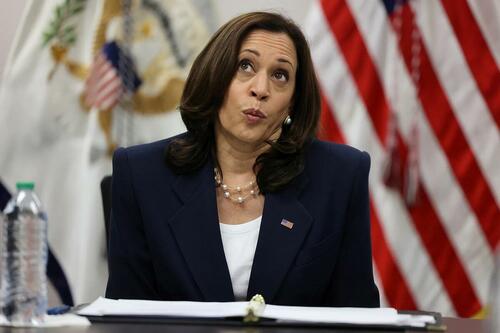Kamala Harris’ Price Control Plan Would Cause A Widespread Supply-Chain Crisis
The Democrats have been instituting a propaganda campaign to hide or deny the effects of inflation ever since Joe Biden took office in 2021. At first, they claimed there was no inflation threat. Then they claimed inflation was “transitory.” When the CPI hit 40 year highs they were forced to admit that inflation was an issue, but refused to admit the true cause (helicopter money from the Federal Reserve to fund various stimulus programs the US cannot afford). Instead, Biden and Harris argued that the business world was to blame and high prices were a product of “price gouging.”
The establishment media has been running with this narrative for years even though it has been thoroughly debunked. Retail prices have risen in direct correlation to the increases in production costs. As prices in raw materials and manufacturing rise, the prices on the shelf rise. And, as too many dollars chase too few goods the manufacturing sector struggles to keep up with labor demands. More labor with higher wages and a strained supply mean, again, higher prices.
Using producers as a scapegoat for economic failure is a time-honored tradition of socialist governments that refuse to take responsibility for their own failures. It is also a way for politicians to pretend like they’re fixing the problem; temporarily treating the symptoms but never actually dealing with the source of the illness (because they are the source).
Here’s your “price gouging” narrative: average costs paid by businesses have risen just as much as costs charged to consumers – if businesses are being “greedy,” they’re doing it all wrong… pic.twitter.com/ALiw72MXSf
— E.J. Antoni, Ph.D. (@RealEJAntoni) August 14, 2024
Rising costs were a top challenge for manufacturers in 2023 and this year looks to be no different. Inflation caused prices to spike not only for materials, but wages and energy and the problem is expected to persist well into 2025. Industry reports also suggest that declines in consumer demand have combined with inflation in prices, putting a strain on profits and the supply chain.
As demand falters and costs increase manufacturers have to reduce supply. As supply declines, either shelves will be empty or prices will climb even higher on the black market.
The Kamala Harris campaign recently released their economic policy plan to solve the ongoing stagflationary crisis, and it’s not surprising that Harris intends to continue the very same strategies that caused the problem in the first place. She intends to print even more money to create even more handouts in order to bribe low-information voters. Analysts are calling her plan an attempt to institute communist economic restrictions and upend what’s left of the free market. This is true, but what does this mean in terms of consequences?
Beyond causing the death of what’s left of the free market in the US, the bigger threat is the immediate damage that price controls will cause to the supply chain. With already thin profit margins for manufacturers and rising labor costs there is little room to maneuver. Price controls would put a low ceiling on revenues and without profit incentives, there is no reason for companies to continue producing. They will slow production of goods or shut down completely until better market conditions return.
It’s interesting to note that both the World Bank and even the Federal Reserve have recently warned about the dangers of price controls – Those guys are corrupt, but they aren’t crazy like Kamala. The last time the US instituted price controls was during the early-1970s during the onset of the last stagflation crisis. This was after the Nixon-era removal of the Dollar from the gold standard. It was an unmitigated disaster.
On Aug. 15, 1971, in a nationally televised address, Nixon announced, “I am today ordering a freeze on all prices and wages throughout the United States.” After a 90-day freeze, increases would have to be approved by a “Pay Board” and a “Price Commission,” with an eye toward eventually lifting controls. This move was initially popular and helped win Nixon a second term in office.
However, by 1973 and the advent of the OPEC Oil Embargo it had become clear that price controls did not work. As the New York Times noted in June of 1973:
“Housewives searching their supermarket shelves this coming week will find most of what they want still there. But widening circle of food processors and retailers are caught in a profit squeeze resulting from the price freeze, and this is beginning to curtail production of some foods…It could lead to shortages of many items in the next month.
Every echelon of the food industry, from farmers to retailers are criticizing the ceilings imposed on meat in March and on all other items on June 13. Their unhappiness about the ceiling has contributed to recent warnings of shortages.”
In June 1973, Daniel Yergin and Joseph Stanislaw explain in The Commanding Heights: The Battle for the World Economy:
“Ranchers stopped shipping their cattle to the market, farmers drowned their chickens, and consumers emptied the shelves of supermarkets…”
The government is in no position to police prices. These controls will only cause more damage in the long run and Kamala Harris and her team of Biden advisors are not intelligent enough to deal with the problem anyway.
Tyler Durden
Sat, 08/17/2024 – 09:55

